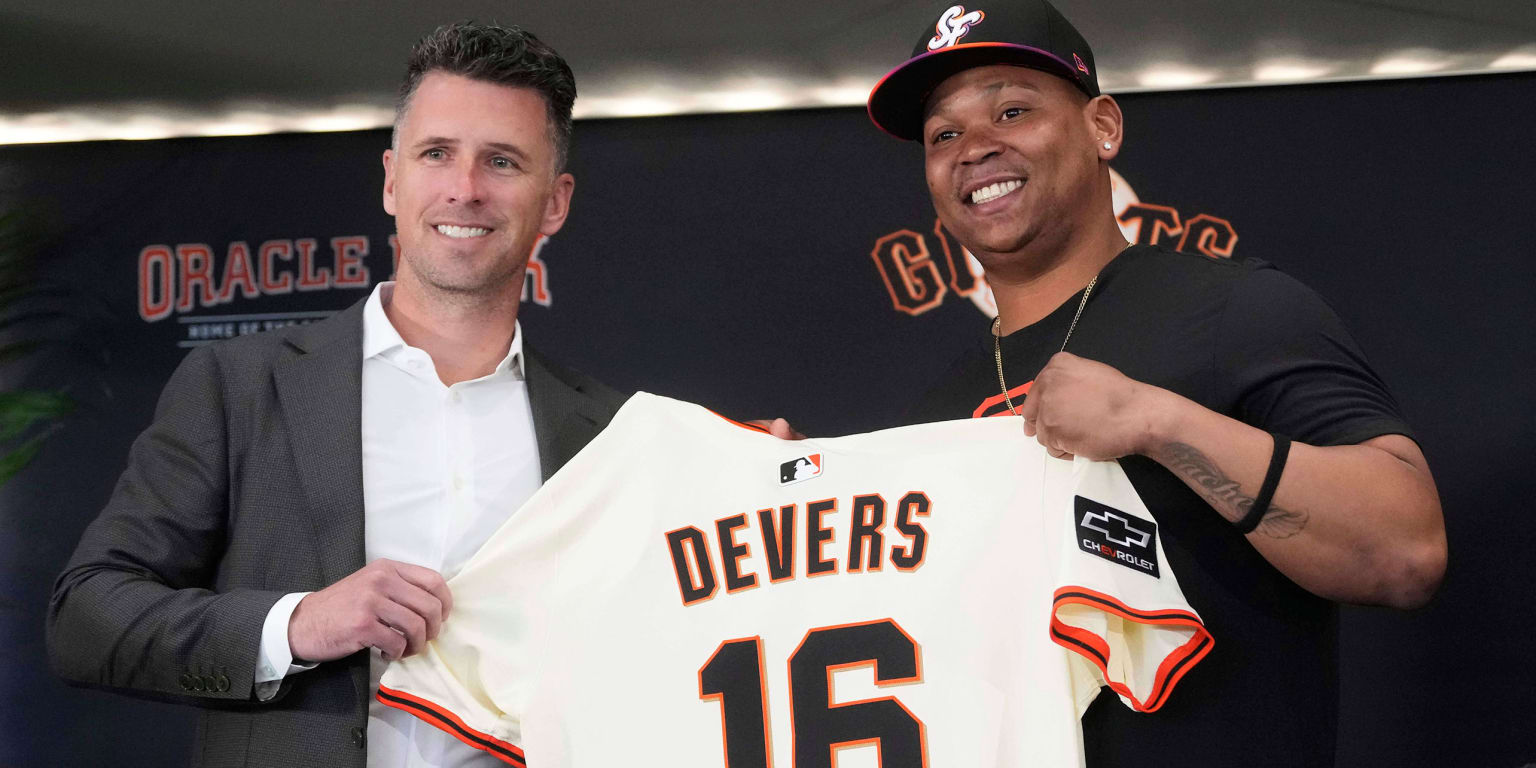What Happened
On June 17, 2025, the San Francisco Giants officially introduced Rafael Devers as their newest player during a press conference at Oracle Park. This event marked the beginning of a new chapter for Devers, who was acquired from the Boston Red Sox in a significant trade just days prior. The Red Sox received several prospects in return, including left-hander Kyle Harrison and right-hander Jordan Hicks, as well as a first-round draft pick and another pitching prospect. Devers expressed gratitude towards the Red Sox for the opportunities they provided him since signing with the team as a teenager in 2013, but he also acknowledged the tensions that led to his departure.
In his debut with the Giants, Devers was positioned as the designated hitter and batted third in the lineup. Manager Bob Melvin indicated that Devers would also begin training at first base, a notable shift given that positional disagreements were central to his exit from Boston. Devers had previously resisted moving from third base to accommodate another player, which contributed to the breakdown of his relationship with the Red Sox.
Key Details
- Trade Details: Devers was traded to the Giants from the Red Sox in exchange for Kyle Harrison, Jordan Hicks, 2024 first-round pick James Tibbs III, and pitching prospect Jose Bello.
- Contract Status: Devers is in the second year of a 10-year, $313.5 million contract extension he signed with Boston in 2023.
- Debut Performance: In his first game with the Giants, Devers started as the designated hitter and was expected to split time between DH and first base due to an injury to Matt Chapman.
- Manager’s Comments: Bob Melvin stated that Devers is willing to play wherever the team needs him, highlighting his adaptability.
- Lineup Context: The Giants’ starting lineup for the game included players like Jung Hoo Lee, Willy Adames, and Mike Yastrzemski, while the Guardians featured Jose Ramirez and Carlos Santana.
Multiple Perspectives
The trade has drawn mixed reactions from analysts and fans alike. Supporters of the Giants view the acquisition of Devers as a major step toward enhancing their offensive capabilities, particularly given the team’s need for a consistent power hitter. Buster Posey, the Giants’ president of baseball operations, praised Devers as a transformative player who can elevate the performance of his teammates.
Conversely, some critics question the decision to trade multiple prospects for a player who had a contentious exit from his previous team. They argue that the Giants may have overpaid, especially considering the potential long-term impact of losing young talent. The differing opinions reflect broader debates within baseball regarding the value of established stars versus developing prospects.
Context & Background
Rafael Devers is a three-time All-Star and was a crucial member of the Red Sox team that won the World Series in 2018. His performance in Boston included significant offensive contributions, making him one of the most recognized players in the league. However, his recent struggles with positional changes and disagreements with management raised questions about his future with the team.
The Giants, currently competing in a tightly contested division, are looking to bolster their lineup as they aim for a playoff spot. The addition of Devers is seen as a strategic move to enhance their chances of success in the coming months. The Giants have not had a 30-home run hitter since 2004, and Devers could potentially fill that gap.
What We Don’t Know Yet
While Devers has expressed enthusiasm about his new role with the Giants, it remains to be seen how effectively he will adapt to playing first base, a position he has not previously occupied in his professional career. Additionally, the long-term implications of the trade for both the Giants and the Red Sox are still uncertain. The performance of the prospects acquired by Boston will be closely monitored, as their development could influence the evaluation of this trade in the future.
Furthermore, the dynamics within the Giants’ clubhouse and how Devers integrates with his new teammates will be critical to his success in San Francisco. The ongoing performance of the Giants in the season will also play a role in determining whether this trade was a pivotal moment for the franchise.


